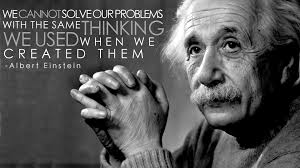Fixing an Ignorant Mindset
 Wishful thinking and cognitive bias have doomed many start-ups before, and they can destroy yours, too. We don’t challenge what we believe because we’re tired of doing research and we just want to start already. When we believe we already know everything, what’s the use of doing more research? We focus on skill and neglect luck, giving us a false illusion of control. We think that we are more skillful than our competitors, and that will be enough. Sadly, success is not always directly related to skill. There is always a large component of luck. Take the music industry, for instance. It’s littered with poor performers whose skill and talent lag far behind the many talented singers, musicians or composers who never got the one lucky break they needed. It’s easier to rely on what we already know than to challenge it. Our brains are hardwired that way. When we don’t acknowledge what we don’t know and understand, it makes us overconfident in our assumptions, and we forget how much we don’t know.
Wishful thinking and cognitive bias have doomed many start-ups before, and they can destroy yours, too. We don’t challenge what we believe because we’re tired of doing research and we just want to start already. When we believe we already know everything, what’s the use of doing more research? We focus on skill and neglect luck, giving us a false illusion of control. We think that we are more skillful than our competitors, and that will be enough. Sadly, success is not always directly related to skill. There is always a large component of luck. Take the music industry, for instance. It’s littered with poor performers whose skill and talent lag far behind the many talented singers, musicians or composers who never got the one lucky break they needed. It’s easier to rely on what we already know than to challenge it. Our brains are hardwired that way. When we don’t acknowledge what we don’t know and understand, it makes us overconfident in our assumptions, and we forget how much we don’t know.
Even Hollywood Does It
Every year, the Hollywood movie studios all release their big blockbusters at the same time. Sure, it’s peak season, but all their competitors also release films at the same time. The abundance of films crowds the landscape, and they all have to fight harder for audience attention and have to spend more marketing dollars. When asked about the practice, the famous screenwriter William Goldman once said that in the movie industry, “nobody knows anything… Not one person in the entire motion picture field knows for a certainty what’s going to work. Every time out it’s a guess and, if you’re lucky, an educated one.” He blames the situation on hubris–excessive pride or self-confidence–within the industry. The key decision makers don’t have the mindset to look for innovation and test other ideas against what they already believe. Like so many business owners, they are blinded by their own self-confidence.Challenging our Flawed Knowledge
 We focus too heavily on our own goals and plans, neglecting the ideas and skills of our competition. We let our overconfidence tell us that we can ignore the market because we’ll easily outperform the competition, even without a concrete plan or explanation.We assume that the public will love what we do, without ever testing this assumption by pre-selling or validating the idea with market research. We fail to understand that winning a new customer means we have to convince them to walk away from the competition.
We focus too heavily on our own goals and plans, neglecting the ideas and skills of our competition. We let our overconfidence tell us that we can ignore the market because we’ll easily outperform the competition, even without a concrete plan or explanation.We assume that the public will love what we do, without ever testing this assumption by pre-selling or validating the idea with market research. We fail to understand that winning a new customer means we have to convince them to walk away from the competition.
Your competitors are not always who you think
Say you are a new digital news startup. You are looking to create a platform in a specific niche, maybe fashion. You do your market research and you find a few similar businesses, both online and offline. Still, you know that you have a different angle and something that makes your publication unique. Based on your research, you decide that two online news publications and one printed magazine are your biggest competitors. You’re also confident that what you offer is superior to these competitors, and think there’s a good chance you poach these customers. Yet despite all your research, your biggest competitor may actually be Facebook! Yes, you heard me correctly – Facebook. If your perfect avatar loves fashion but also spends 40-50 minutes on Facebook each day, that means you are now in competition with Facebook for their attention. You must persuade potential customers to give up some of their Facebook time to spend time on your publication if you hope to be successful. If you don’t understand this concept, your idea is dead in the water before you even begin.
To be successful, you have to compete against all the other distractions that vie for your target’s attention. Many of your strongest competitors may be the ones you haven’t thought of yet.
Yet despite all your research, your biggest competitor may actually be Facebook! Yes, you heard me correctly – Facebook. If your perfect avatar loves fashion but also spends 40-50 minutes on Facebook each day, that means you are now in competition with Facebook for their attention. You must persuade potential customers to give up some of their Facebook time to spend time on your publication if you hope to be successful. If you don’t understand this concept, your idea is dead in the water before you even begin.
To be successful, you have to compete against all the other distractions that vie for your target’s attention. Many of your strongest competitors may be the ones you haven’t thought of yet.

